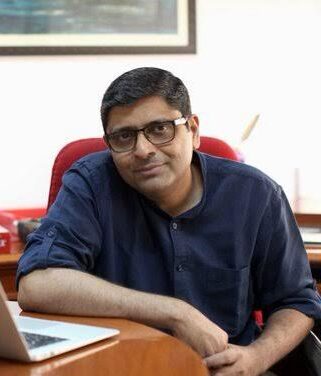Survival of the opportunist
A defection by any other name ought to stink as bad. Jyotiraditya Scindia’s resignation from the Congress had the touch of the ridiculous on various counts, but the worst among them was the theorising by political pundits who find something profound in a turncoat’s desperate act of survival. All the dynasts that we see around us now are those whose ancestors had perfected the art of survival, be they the remnants of medieval kingdoms or the progeny of the post-modern political liberals. That is why the roars of the lions and tigresses of our folklore get muted in speech balloons, with no living descendents of Rani of Jhansi or Tipu Sultan or Pazhassi Raja in sight. The British are believed to have built a road over the Pazhassi Palace in Malabar.
The only way out for the Congress is to strengthen its regional leadership with election-winning candidates and crowd-pulling satraps, instead of snatching defeat from the jaws of victory.
Opportunism is wired into our national DNA. The only brief idealistic interlude in this sordid drama of greed has been the national movement led by Mahatma Gandhi; and since then power-hungry opportunists have been donning a Gandhi topi (any inadvertent comparison to a certain chief minister is purely incidental) to get the voter to part with her vote. The impoverished Indian people, however greedy for a better life, desperately want to believe in the mythology of idealism. It is something more sublime than the belief in God. While God is merely a value-neutral facilitator expected to help out a compromising property dealer or a cop caught cheating, the idealist is the uncompromising, self-sacrificing other. Though the Left and the Right ends of our political spectrum worship the idea of this idealistic other — often personified by militaristic icons like Bose or Bhagat Singh — the Congress has represented the compromised middle space where commoners thrive with no notions or claims of moral supremacy or spiritual splendour.
Even Narendra Modi’s ascent to power was made possible by the invocation of the wrath of Bharat Mata by Hazare, Kejriwal & Co. And even now, both Modi and Kejriwal do not forget to summon Bharat Mata whenever, wherever possible. Our neo-colonial, miserably poor society obviously wants to imagine a militaristic, proud nation, personified as a deity riding a lion. But a fall from the militaristic imagined nationhood results in the complete bankruptcy of the promoters and their electoral rout, as happened to the BJP in 2004, resulting in the return of the Congress for a whole decade. The Congressmen were the ones who were the most stunned in 2004 and 2009. They were simply the beneficiaries of the people’s disillusionment with the empty rhetoric of nationalism, coupled with social strife and economic stagnation.
In fact, the Congress that Indira Gandhi shaped after the split in 1969 and that was successfully brought to power by her family ever since had never tried to define its ideology. It is so even now in the times of heightened social schisms over the death of 53 people in the national capital. The timing of the defection of Jyotiraditya Scindia only proves that a Congress leader is harnessed not to an ideology but to the pursuit of power. This is applicable to each and every Congressman, from a working committee member to a polling booth agent. They are defined by the competition they engage with — the anti-Akali politics of Punjab would have nothing in common with the wooing of Muslims and Dalits in Uttar Pradesh.
In fact, Scindia’s defection only proves that the Congress is still a viable political option. Whether Scindia and his ‘followers’ joining the BJP would lead to the toppling of the Madhya Pradesh government is immaterial because it has shown two things: one, that it was simply a case of an aspirant moving on to a better job (as Scindia’s resignation letter sounded); and secondly, that it has no impact within the Congress party, unlike the split of the party executed by Sharad Pawar, GK Moopanar, Mamata Banerjee, Jaganmohan Reddy, ND Tiwari or K Karunakaran. Even Madhavrao Scindia, who could have been India’s Prime Minister, had split the Congress party to create his own space in state and national politics. However, Jyotiraditya merely proved that in Madhya Pradesh’s bipolar political situation, the Congress party is too strong to attempt a recreation — reducing the original to a rump — as Pawar, Mamata and Jaganmohan successfully achieved in their respective states.
But that does not mean that the Congress has covered itself in glory. A party of opportunists in pursuit of power needs a pragmatic leadership that plans and plots 24×7 to topple the incumbent. Rahul Gandhi’s extended vacations have cost the party dear. Worse, his attempts to impute ideology to his leaders and the workers have created greater confusion within the party. Here is an organisation that will do anything to grab power because power has been the raison d’être of the Congress — once in power, it is for the leaders to use it for the larger good. Instead, Rahul Gandhi dreams of building a cadre for a cadre-less party — turning its greatest strength into its biggest weakness. Indira invited anyone who could win an election — including Madhavrao — to her party and left it to the voters to take the final call on her deeds.
This lesson is lost on the party’s current leadership, which is trying to teach a Congressman to be ideological. The only way out for the Congress is to strengthen its regional leadership with election-winning candidates and crowd-pulling satraps, instead of snatching defeat from the jaws of victory, as it did in Haryana recently.









